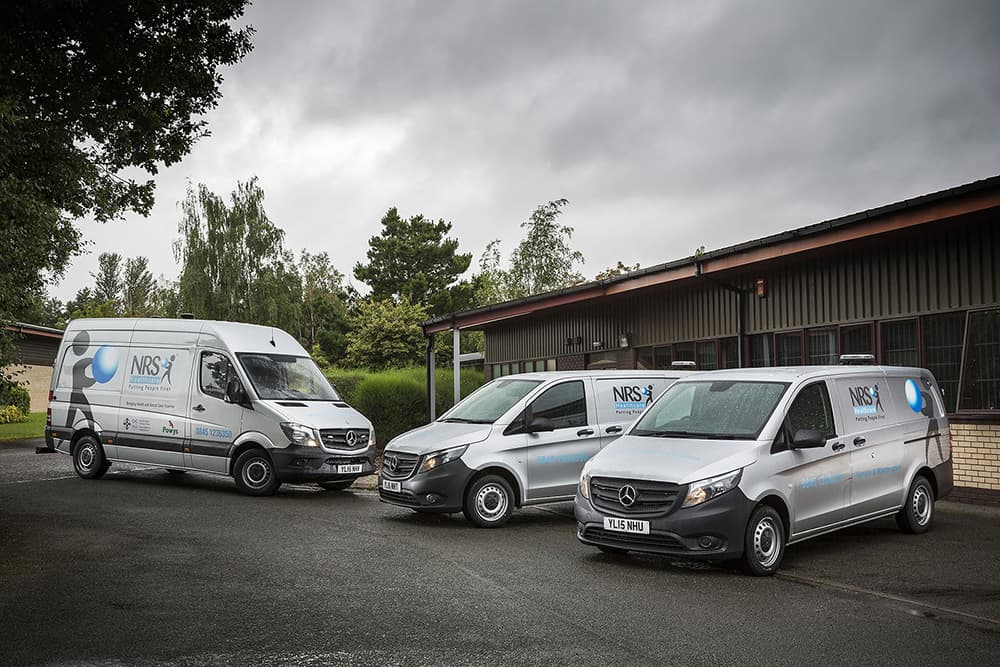Major ICES provider works with TEC specialist to reduce first-time telecare call failure rates by 27%

One of the major Integrated Community Equipment Service (ICES) providers, NRS Healthcare has been working with technology-enabled care (TEC) specialist Appello to reduce first-time telecare call failure rates by 27 percent.
NRS Healthcare provides services designed to support independent living. It works with commissioners across the UK to transform and deliver effective and comprehensive TEC services. These services enable people to live independently and confidently in their own homes.
Since 2018, Appello has delivered monitoring services on behalf of NRS Healthcare in Lincolnshire, North Yorkshire, Berkshire, Buckinghamshire and Torbay, adding West Sussex to the portfolio in 2020.
The UK telecoms infrastructure is undergoing digital upgrades from the analogue Public Switched Telephone Network (PSTN), to the All-IP network. This has resulted in a c10 percent first-time call failure rate across the UK, according to Appello.
As a result of a migration project by NRS Healthcare with one of its local authority customers, it was identified that this was significantly greater amongst devices signalling the analogue protocol BS8521-1. Within a particular large geographic region, first-time call failure rate was identified in up to 28 percent of calls.
However, NRS Healthcare introduced Appello’s cloud application – DigitalBridge – to help tackle this issue.
Discussing some of the challenges that NRS Healthcare was experiencing with call failures, James Lampert, Head of Technology Enabled Care Services at NRS Healthcare, said: “We first needed to understand how many calls on the analogue networks failed first time, causing individuals to dial back and re-present to the monitoring centre.
“As part of this project testing, we identified that the protocol, BS8521-1 was failing at a higher than acceptable rate amongst the telecare devices already in peoples’ homes in a particular region. This was due to infrastructure changes and the age of the telephone network.
“We needed to move the monitoring services for 3,500 customers living in this area on behalf of one of our local authority customers and wanted to ensure that the risk of calls failing to reach Appello first time was at the lowest level achievable.
“Non BS8521 analogue protocols in the same area were experiencing between 0.38% and 0.77% first-time failure rate, which is what we deemed acceptable.”
NRS Healthcare said that receiving first-time calls at its alarm receiving centre was of the “utmost importance” as it helped to reduce risk to the service user and enable the company to offer a fast response to users who needed help.
“In an emergency, speed, and reliability of a connection to call for help is key,” James added.
To help overcome these call failures, Appello presented NRS Healthcare with the opportunity to use its cloud application DigitalBridge – an analogue to digital protocol conversion tool.
DigitalBridge takes the inbound BS8521-1 analogue message from the alarm device into the cloud and then converts this into an outbound BS8521-2 digital message for the monitoring centre.
Following rigorous testing between NRS Healthcare and Appello, the ICES provider turned the 25-28 percent first-time failure rate – from devices signalling BS8521-1 within the area – to a first-time failure rate running at 0.006 percent.
“This exceeded expectation and gave us, and our local authority customer the confidence to switch over and run calls via the DigitalBridge,” continued James.
The switch was successfully completed in October 2020. Since then, NRS Healthcare says that DigitalBridge has enabled it to continue this success rate of calls reaching the monitoring centre first time.
In turn, this has given NRS Healthcare and its commissioners confidence in a safe and effective service for people who need telecare to help them live safely and independently.
To implement Appello DigitalBridge, Appello and NRS Healthcare took a project management approach, with weekly project meetings and reports to keep NRS Healthcare’s local authority customer up to date with progress.
James explained: “Testing was a partnership effort, with the Appello technical team working closely day to day with our project team, technical experts and telecare technicians.
“We have the confidence that when people use our telecare service for assistance, the call is going to get through as quickly as it can to an operator, on the current analogue network.
“We know that this is not a long-term fix and that as digital services are rolled out by telecoms providers the offer will need to change. But for now, Appello DigitalBridge has been a welcome solution that has supported us to keep people safe at home.”

